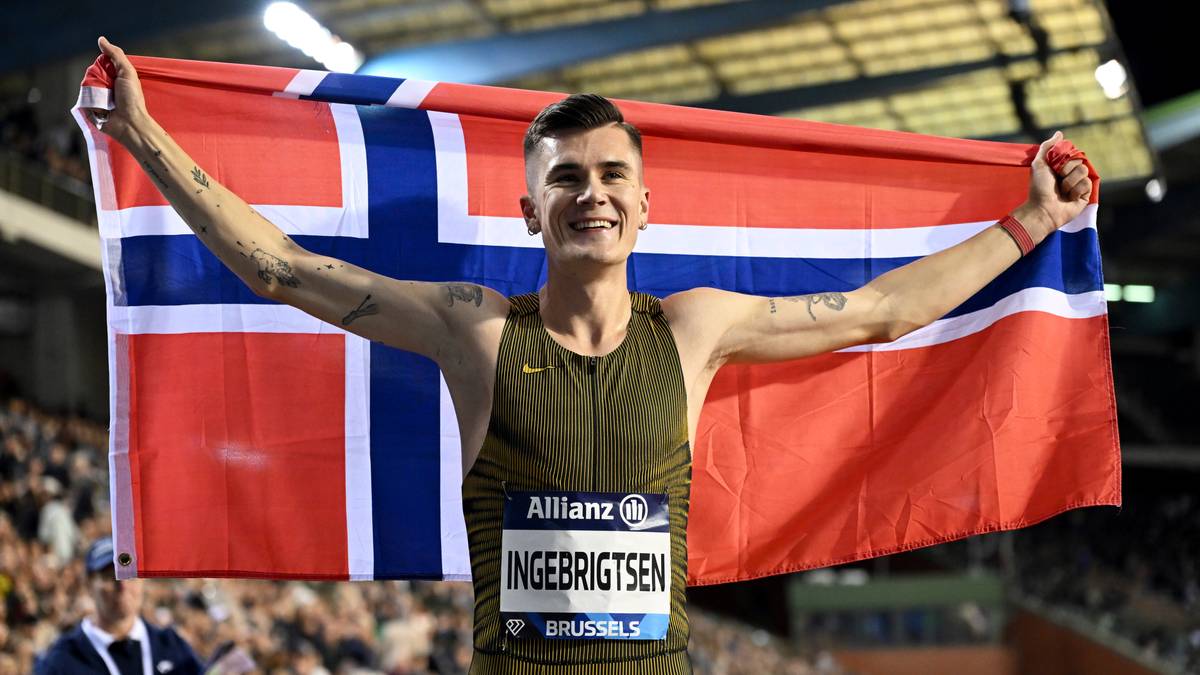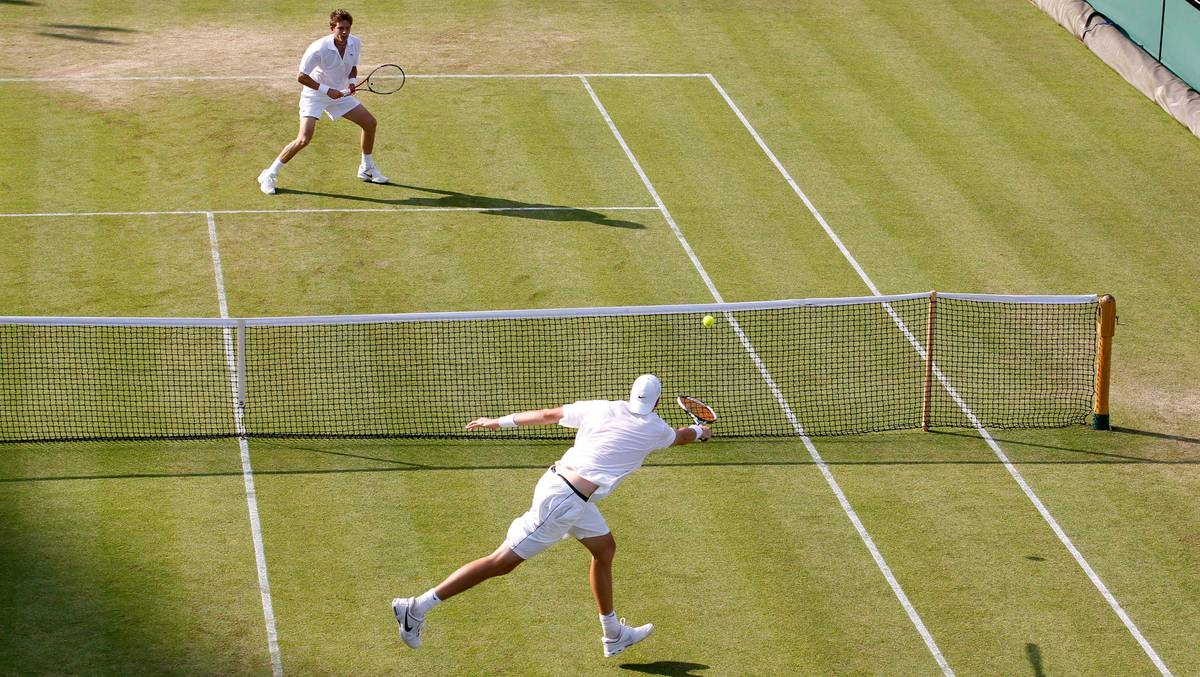Taget-Foxell is a psychologist who has worked – and work – with some of the country’s biggest sports stars. He has been referred to several times as a “super psychologist”.
National team captain Maren Mjelde, who previously worked with psychologists, told NRK that there was a lengthy phone conversation last night.
MEET THE PRESS: Maren Mjelde the next day.
Photo: Terje Pedersen / NTB
– He’s very important. He was important for several years. He was up last night, so to speak. We took a few calls and got some nice words. “He is a very good person to me personally and more,” Mjelde said.
Caroline Graham Hansen also uses a sports psychologist as a sparring partner.
– Very, very good resources and people. It’s good for people to take the initiative and do what they need to move forward, Graham Hansen told NRK.
Experienced
Taget-Foxell has, among other things, been Therese Johaug’s regular conversation partner both before and after cross-country skiing. He has been the same for many other star athletes, including Olaf Tufte and Marit Bjørgen, and other national teams.
In addition to her work at Olympiatoppen, she has also worked at The Royal Ballet in London, and is affiliated with the British Olympic Association.
He rarely spoke to the press. However, in 2019, he posed for an interview with NRK.
– Only Chanel smells in the dining room when she’s there. This gets you in the right mode. About the right mindset and what you have to go through in the competition, Johaug has told NRK beforehand.

PSYCHOLOGY: Britt Taget-Foxell pictured in connection with the NRK interview in 2019. This is one of the few interviews she has had with the press.
Photo: Mikal Aaserud / NRK
Present
National team media manager Halvor Lea referred to Summer Olympics manager Marit Breivik when asked about the role of sports psychologists during the European Championships. However, he said that Taget-Foxell was present during the championship, but he came home a few days ago.
Breivik told NRK that Taget-Foxell was working with the national team both at meetings and from home in London.
– This is the form of work he uses in other national teams as well. For example, women’s handball and rowing, says Breivik.
According to Olympiatoppen, Taget-Foxell is a specialist in psychology and injury rehabilitation.
Feeling bad
Sports psychologist and mental coach in Vålerenga, Peder Daviknes, explains how important it is not to sit inside feeling bad.
– It’s easy to feel embarrassed, irritated, and irritated. Nothing is left with positive feelings after this, so it’s about getting feelings and thoughts out, making them shared, visible within. It’s helpful to share so they don’t go around feeling alone in their perspective. Coming out of this as a collective will be important, says Daviknes

MENTAL COACH: Peder Daviknes
Photo: Beate Oma Dahle / NTB
Sports psychologists say that there’s a lot to learn in making mistakes, because you get into something more often. Because of that can Norway came out of a positive fade.
– If you manage to come up with good learning, and shooting speed from this experience here, you could be better prepared in the quarter-finals against a team of the same caliber as England.
– When a group of people go through something traumatic together, and come out of it together, it can strengthen relationships and a sense of community.

“Infuriatingly humble coffee guru. Travel practitioner. Freelance zombie fanatic. Certified problem solver. Food scholar. Student.”





